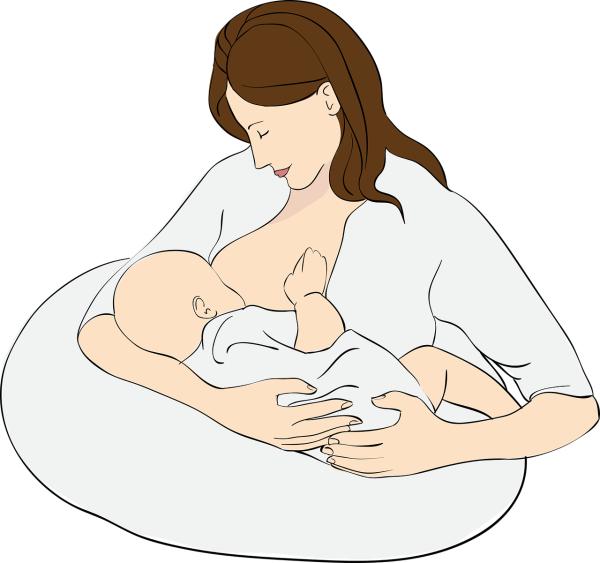“At all costs” breastfeeding messages are a consistent refrain from policymakers to activist organizations. I would argue when they exclude discussion of formula, concomitant disease, realistic personal and infant challenges along with what is in the best interest of the family such well-intentioned directives are routinely misguided, even intellectually dishonest.
A recent piece in Medscape entitled Misconceptions Disrupt Breast-Feeding Mothers details a presentation given at the American College of Obstetricians and Gynecologists (ACOG) 2018 Annual Meeting. The content published here fails to tell the whole story.
Here are a few examples from the article of sentiments that stop short:
"One of the most damaging things we do from a medical perspective is interrupt breast-feeding without evidence-based justification...It undermines women's confidence, and that can sabotage breast-feeding, when women aren't confident and trusting their bodies to do what they can do."
The breastfeeding relationship is a symbiotic one with the infant. Discussing maternal impact in isolation of the infant, is not providing fully informed consent. There are times when infants are in medical need of hydration and supplemental nutrition, when life-saving measures or thriving are imperiled - breastfeeding defaults to a secondary priority. And still, despite disruption, due to innate protective reflexes on behalf of the baby, they can successfully resume breastfeeding. In the real world, there might be a challenging few feeds, but inevitably the infant will not permit himself to starve. What undermines women’s confidence is perpetuating a belief that there is one way to feed an infant under any and all circumstances at any and all times. “Sabotaging” breastfeeding can be essential for a family’s survival when dealing with postpartum psychosis or a mother on chemotherapy.
“Don't Stop Breast-Feeding...The only exception after surgery is receiving codeine or tramadol if mothers have the gene that affects metabolism of these opioids, which could put their infants at risk for overdose.”
This statement is inaccurate and irresponsible. Yes, there are many medical situations where continued breastfeeding is completely reasonable and the preferred alternative. Fortunately, we know about the adverse effects of a number of medications or conditions while breastfeeding to weigh in on compatibility and safety. To a certain extent maternal exposures can be passed along into the breastmilk. A host of factors are at play in determining the extent (e.g. specific metabolic pathway of drug and its half-life, immature hepatorenal system of infant (in particular premature ones)) and assessing the level of risk. Promoting this notion that universal infant exposure to a pharmaceutical is somehow safer in all scenarios than giving a drug-free formula feed is ill-advised.
Just like not all mothers are the same, neither are all babies (some have underlying health issues). Narcotics can suppress the respiratory drive of an infant, even a run-of-the-mill antihistamine has caused rapid heart rate, aka tachycardia, in the baby - certain heart medications can be dangerous for a baby etc. These choices to breastfeed or temporarily stop are personal ones determined on a case-by-case basis. During these instances, weighing the risks and benefits to mom and baby are comprehensively discussed with their physicians so that families’ autonomy is preserved and they can be empowered to make the best decision. Guilting them to continue to breastfeed at all costs under such circumstances is in conflict with the basic principles of bioethics (e.g. nonmaleficence).
“it's not "normal" for breast-feeding to hurt”
This mantra needs to be more nuanced. A proper latch should not cause pain, but can take some practice to perfect and be a bit awkward at first. The vast majority of new mothers struggle with breastfeeding, in particular during the newborn period. If they can be properly supported, then this is often the make or break time where they continue to breastfeed or stop entirely. Perpetuating this notion that women are one with nature from the moment of birth while ignoring some are recovering from major surgery like C-sections, for example, contributes to this feeling of failure and shaming that many endure when the act of breastfeeding turns out to be less intuitive than imagined. For new mothers, the first few weeks are challenging as the norm, not the exception. When we don’t manage expectations and convey that message, we unnecessarily add negativity to what should be an otherwise wondrous experience.
To sum up…
Women and families are not one-dimensional, treating them as such does more harm than good. There is no dispute that breast milk and feeding has innumerable benefits and is the gold standard. It should be supported. But, a healthy mother and a healthy baby is the goal - as well as a healthy family. Dismissing the reality that formula has also saved countless lives and can achieve this important goal is not helpful or supportive.
Note(s):
To review in greater depth this topic, see the following of my articles:
- WHO, UNICEF Breastfeeding Policy Political Move, Not Necessarily Health One
- ‘At All Costs’ Health Campaigns Undermine Women
- La Leche League Message For Harvey Victims A Bit Disconnected
- Annoying Studies’ Series: Newborn Weight Gain (Again!)




